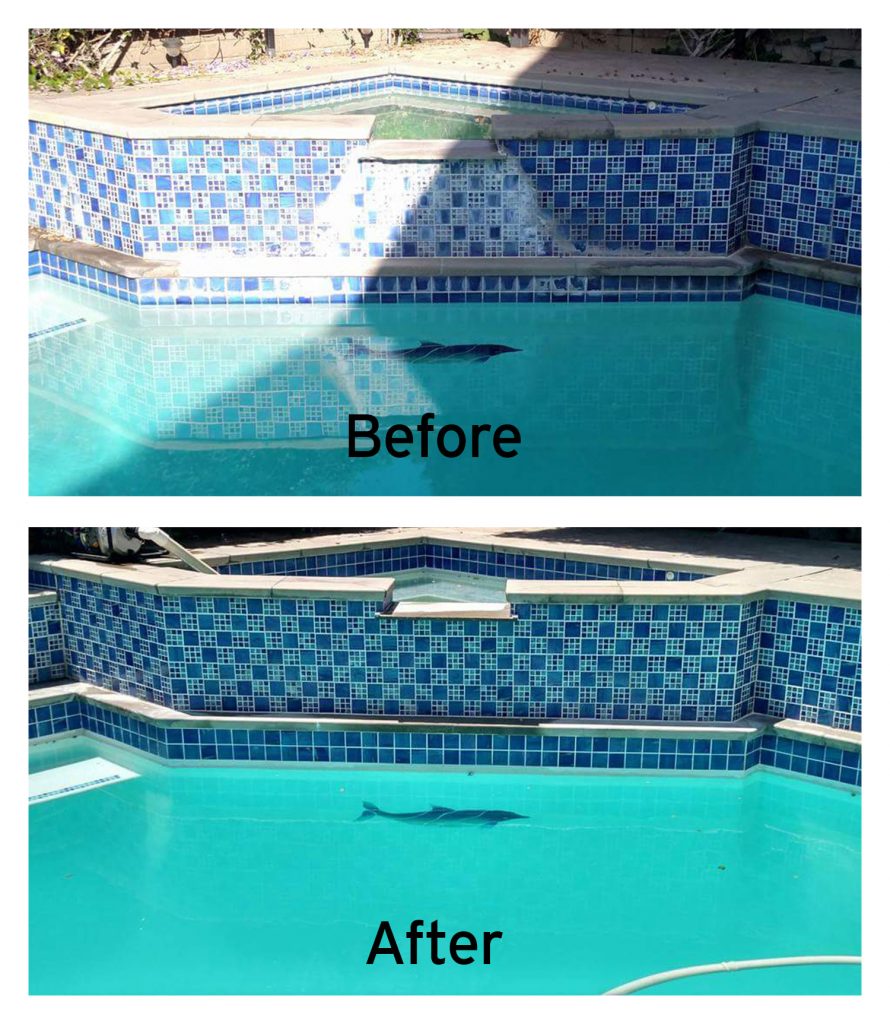Keeping your pool clean and healthy should be the entire point of regular pool maintenance. And that pool that looks so great week in and out, is an absolute delight to the pool owner.
The most common solution to achieve this is a regular treatment of the pool water to remove lime and debris.

However, the wrong dosage of cleaning products can lead to the accumulation of several layers of limestone on the walls and in the pool’s bottom. To remove this debris, you need to understand everything that can make them appear.
The Importance of Chlorine for the Pool
Chlorine is the first choice for maintaining healthy pool water. Chlorine has been used for years in swimming pools around the world.
It is a highly reactive chemical that reacts with all kinds of biological impurities in water.
If these organic impurities are not treated with care, bacteria can develop algae or even a bio-film.
What Happens if a Swimming Pool is not Well-balanced?
If the pool water has a high calcium hardness or other debris, this can cause technical problems. Like fouling or lime in the pipes and in the pool itself.
As a result, the maintenance and cleaning of the pool will increase. If the supply water is very hard, large amounts of lime can deposit on the sides of the pool.
Even if there is only a little calcium carbonate in the water, and following an unbalanced addition of chlorine and PH, lime will form at the level of the evaporation line of the water as well as on the pool walls. These lime deposits at the edge of the pool are often difficult to remove and involve manual work.
Water Filtration Rings: Less Effort, Less Cost
Compared to the maintenance consequences described above, the solutions seem incredibly simple.
The main configuration of a swimming pool is always the same. There is a filter system, a pump, and maybe a heating element, that’s all.
In accordance with the size of the pool, you must install a ring at the freshwater supply line and another ring in the circulation line. In the case of a large public swimming pool, install in the circulation line of each swimming pool, to get the same results in all swimming pools.
What’s the result?
In case of calcium hardness, the ring keeps the dissolved calcium in the pool water, which will have a more fluid texture. Over time, the pool water will be much softer, despite the calcium.
Less crust will form on the evaporation line. And limestone debris will be much easier to remove. When you use these filters and rings, you are also fighting the growth of algae in the pool.
Many owners have stopped using chemicals since the installation of these rings.
No chlorine or other pool chemicals. Without having problems with water quality.
I would not recommend such a thing for a public pool. If countless visitors use this pool, the risk would be too great. I am sure the regulatory authorities would not agree.
However, it is preferable to use these rings even for public swimming pools in order to reduce maintenance costs for protecting pipes or walls of the swimming pool. By doing this, you will need a lot less chlorine to disinfect the water than before while maintaining the same quality of water.



